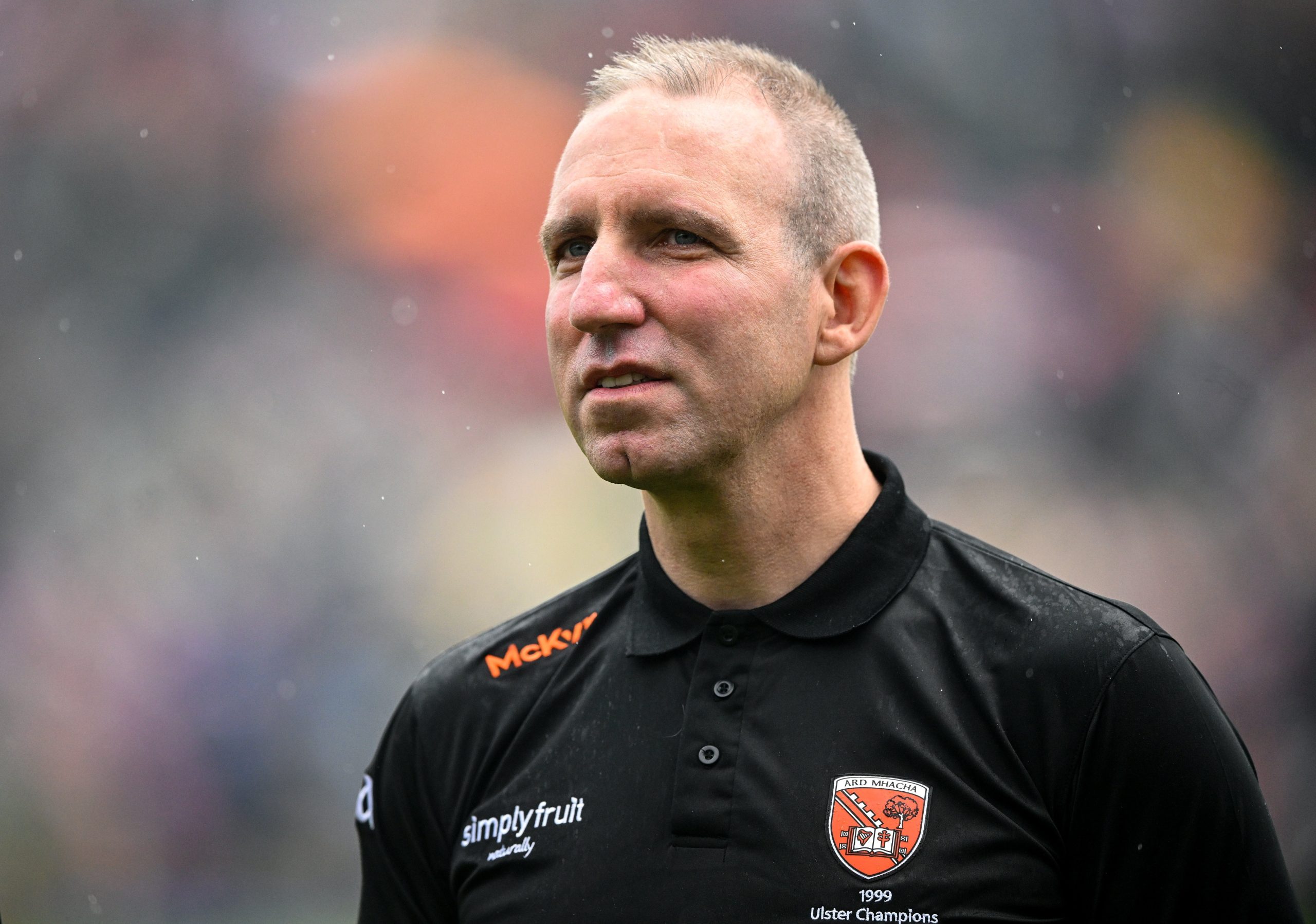By Niall Gartland
YOU may have chanced upon Malachy Clerkin’s column in the Irish Times the other week.
Rory McIlroy had finished second in the US Open, one of the four golf majors, and the view espoused in thousands upon thousands of social media posts was that he had effectively blown it.
Social media isn’t known for nuance, but Clerkin, a well-respected and experienced sports journalist, didn’t cock a snoop at the unwashed masses, claiming that McIlroy had indeed, ‘choked’.
It wasn’t an out-there claim – McIlroy had scuffed two eminently puttable shots in the closing holes when it looked like he was about to win his first major in a decade. One was a tester, granted, but the other he’d usually put away in his sleep.
But anyway, the loaded question of ‘choking’ aside, there’s no doubt that composure when the fat is in the fire is one of the hallmarks of champions.
Take the Dublin footballers and their last-gasp equaliser against Mayo the very same day – Sunday, June 16 – of McIlroy’s tale of woe. They had 30 seconds to concoct an equaliser and you can talk about financial advantages and all the rest of it, Ciarán Kilkenny, Jack McCaffrey and Cormac Costello are serial winners and they stitched together an incredible point when there was zero margin for error.
Former Armagh footballer Enda McNulty is an expert on the matter. The 2002 All-Ireland winner is a long-standing performance coach with impeccable credentials, having worked with Olympians and the Leinster rugby team that won three European Heineken Cups inn five years.
First of all, we wanted to know – did McIlroy in fact ‘choke’ on the big stage?
McNulty said: “I think Rory produced a phenomenal performance overall. He clearly tightened up in the clutch a few times, everyone can see that.
“Did he choke and produce a subpar performance in those two or three big putts? Choking’s an unbelievably strong phrase to use about someone who finished second in the world at the highest level of world golf. I’m always wary of the language and narrative we use about any elite performer in general. He finished second in the US Open – that’s massive. How many other Irish people in history are capable of finishing second in a leaderboard at any level in any global sport?”
Whatever terminology you might wish to deploy, McNulty acknowledges that McIlroy needs to address his putting under pressure – that’s just a matter of fact. He says that composure is something that can be trained or nurtured like any other skill.
“You’re speaking to the guy that got sent off in front of about 80,000 people at Croke Park (Armagh’s 2004 All-Ireland SFC quarter-final defeat to Fermanagh). Looking at my football career overall, I think I was very good in that space, but in hindsight I could’ve been much better.
“Can composure be improved? 100 per cent. It needs to be trained, it needs to be coached, it needs to be focused on like a physical skill – like kicking a ball in Gaelic Football, potting a ball in snooker, scoring a penalty or whatever it is.
“That skill needs to be practiced with the same focus, the same intent, the same deliberate practice as you would with any other skill.”
Free-taking is one particular area where it pays to be ice-cool in the clutch moments. McNulty cites Johnny Sexton as a world leader in that respect. Again, it is something that can be nurtured.
“The best I’ve worked with in that respect is Johnny Sexton. I’ve probably attended hundreds of his kicking sessions, and I learnt a lot from those sessions myself – if you’re not learning as a performance coach, then you’ve no right to be in the arena, and those elite performers will challenge you every day.
“When you’re working with a world-class athlete like Johnny, you notice first and foremost that they have a strong pre-kicking routine. In golf it’s a pre-shot routine, in rugby it would be a pre-throw routine for a hooker, in Gaelic Football it’s a pre-kick routine. It helps you be more composed and consistent, and the more you practice the more comfortable you’re going to be under pressure.”
One of his former Armagh teammates, Oisín McConville, was renowned for his ability to produce the goods on the biggest days in Gaelic Football. He was an excellent free-taker for club and county, and he also showed his resilience on Armagh’s most famous day, shrugging off a missed penalty late in the first half of the 2002 All-Ireland final and cracking home a memorable goal in the second half.
McNulty said: “Oisín is one of the most composed, coolest executors of a skill like free-taking that I’ve ever come across.
“Oisín could have had a really quiet week in training, he could’ve had a bad injury with his back, and mightn’t have been in unbelievable shape two or three weeks before a big game. He might’ve been quiet in an Ulster semi-final, or an All-Ireland quarter-final, but in the really big games he showed up.
“He was a phenomenal executor of the basics under pressure and it’s the same for Rory McIlroy, he’s been consistently one of the best performers in the world for over 15 years. Yes I know he hasn’t done it enough in majors, but otherwise he’s performed in clutch scenarios relentlessly.”
Then there’s the question of bouncing back from a bad day at the office. You can’t win ’em all, and the important thing is learning from the unwanted experience.
“Everyone in life will have to bounce back at some stage,” said McNulty. “It could be a break-up of a relationship, it could be losing a job, it could be somebody close to you dying.
“In the sporting world it could be missing a penalty in the All-Ireland final, it could be missing a putt from four feet at the US Open.
“What happened isn’t important, it’s how we react to it. That’s very much about our resilience, mindset and mental toughness, and can be trained. It’s a decision that we can all make.
“Say for example, England didn’t perform brilliantly against Denmark in the Euros but how they respond in the next 24 hours is everything. Rory missed two very significant putts in the US Open but it seems that he’s responded brilliantly as he’s talked about resilience in the media since. He seems to have stayed positive in his reflection of his own performance while recognising that he has things that he needs to improve.
“One of the things you find about elite performers at that level, they have an incredible mindset and Rory and his team won’t use a term like a ‘drought’. Instead the focus will be on improvement, learning, and how he can go about improving his mental toughness.”
Then there’s social media. Even the most thick-skinned athlete would find it difficult to stay unaffected by stinging, even hateful criticism from every corner of the ‘net’. Twitter (now X) can be particularly toxic. Criticism can also be found in newspapers and online articles, and McNulty says it’s important players are able to deal with it.
“Even going back to my Armagh days, I remember one of my teammates saying to me on the backseat of the bus heading to a game, and he’s really concerned about something that was said in the Sunday papers about him.
“So it is a very common thing now, that even Olympic athletes regularly bring up. What we have to do with elite performers, is making them so strong, so resilient that they’re able to handle it.
“However, if they are affected by it, normally what you’d do is sit them down and say to them, let’s talk about what has been said about you on social media, let’s understand how you feel about it, and let’s choose how you respond to it.”
Another method of dealing with any potential flak is shunning social media altogether in the lead up to the big game.
McNulty said: “In some cases with elite performers, there’d be no social media engagement for at least three days before the big event. Sometimes they delete the apps altogether.
“Sometimes newspapers will be removed from the team environment via the media manager. You even have professional athletes who’ll say to their families, not to refer to what’s going on in the media as sometimes a family or friend might read the newspaper and relay it to the player.
“These elite teams are creating a high performance system and part of that is managing the media, in particular the negative media messages where someone’s coming out with a scathing attack on you.
“Even the most confident player in the world finds that very hard to deal with. By the way, the Irish media in general are really supportive and positive by and large.
“You never really read scathing attacks in Irish media, thanks to be God.”
Basically, like anything in life, it’s all a learning experience. You can’t win every day you go out, and all you can do is reflect, learn and apply the necessary adjustments, something that McNulty says that he himself is very mindful of in his own job.
The managing director at McNulty Performance said: “I started off as a performance coach and now I’d say it’s only about 10 per cent of what we actually do, a lot of the rest of it is working with global companies on leadership, resilience and well-being.
“You have to evolve and grow and develop. Otherwise, as Dessie Ryan used to say, you’re going to run out of road.”
Receive quality journalism wherever you are, on any device. Keep up to date from the comfort of your own home with a digital subscription.
Any time | Any place | Anywhere














